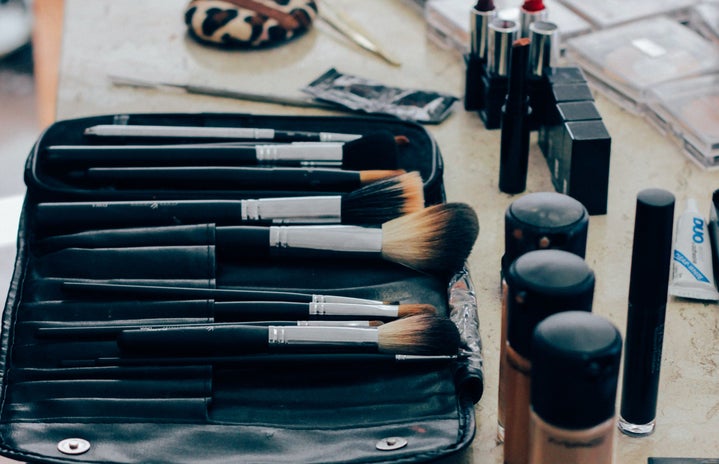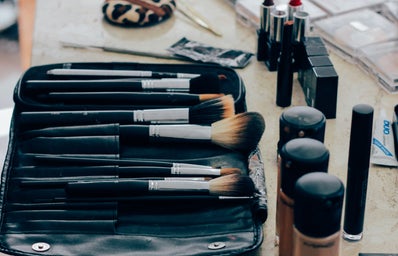The information contained in this article reflects my personal research/experiences with skincare, and is intended to be taken as such. I am not a dermatologist or a medical professional, you should always speak with a qualified professional when it comes to your personal health, especially if you are dealing with clinical skin concerns. The products mentioned are purely recommendations and are in no way exhaustive or advertisements.
Why have a skincare routine?
Hot on the heels of International Stress Awareness Week, this article brings you a step-by-step guide to putting together an effective routine and also explains what each step is designed to achieve. I’ve listed some product recommendations for you to consider and included ways to use your skincare routine as an opportunity for stress relief.
Our skin is the largest organ of our body but is rarely given the special care it deserves. Most people only pay attention when the skin quality declines due to ageing, sun damage, breakouts or otherwise. So why not be proactive about skincare? After all, even the most basic, well curated skincare routine will protect your skin from damage, prevent and manage breakouts as well as slow down the process of ageing, with prolonged and consistent use. Sounds like a pretty good payoff for just 20 minutes of your day, right?
Step 1) Cleansing
Very few people would disagree with me when I say that cleansing is THE MOST IMPORTANT step in taking care of your skin. Cleansing removes impurities, oils, pollution and other free radicals from the surface of your skin, helps clean your pores and prepares your skin to properly absorb any other products.
MORNING: spend at least a minute cleansing your skin. Gently massage the product onto your skin, following the directions of your particular cleanser, and rinse off properly. You can use this time to meditate or recite positive affirmations to start your day off on a high note.
NIGHT: we’re going to double cleanse, which means we’ll first use an oil-based cleanser*, to remove the spf, makeup and other debris gathered on top of skin. Fear not, those with oily skin, a properly formulated oil cleanser WILL NOT break you out. We’re then going to follow with our water-based cleanser from that morning to cleanse the surface of your skin.
*Oil based cleansers come in a liquid form but are also available as balms that melt into oils from the heat of your skin. Both present an opportunity to give yourself a relaxing facial massage that can help to release tension and toxins from your face and body. The oil cleansers I have recommended emulsify when brought into contact with water. That means they’ll wash away without a trace and leave no residue on your skin.
Recommended cleansers:
Water-based (suitable for all skin types):
- CeraVe Hydrating Cleanser (particularly for those with dryer skin)
- Cetaphil Gentle Skin Cleanser
Oil-based:
Step 2) Exfoliation
Exfoliating your skin will help to bring new, healthy skin cells to the surface by getting rid of older, dead skin cells. We have a natural ‘turnover cycle’ for our skin cells and it is important to keep this process going for a number of reasons. To name just a few, cell turnover helps to prevents breakouts by clearing our pores (small openings on the surface of our skin), slows down the ageing process by stimulating the production of collagen (the substance that gives our skin a youthful elasticity) and maintaining an even-toned, radiant complexion.
However, most people I know exfoliate in a way that is actually harming their skin. Scrubs which contain microbeads wear away at the surface of your skin indiscriminately, meaning they get damage both healthy and dead skin cells. Instead, I highly recommend you consider the use of skin-loving acids to exfoliate. I’ll introduce you to just two types:
- BHAs (beta hydroxy acids) mainly exfoliate inside the pore lining of your skin to dissolve the dead skin cells, excess sebum and other substances that have built up.
- AHAs (alpha hydroxy acids) exfoliate the surface of your skin to improve the appearance of textural issues like fine lines, hyperpigmentation (aka scarring).
For those of you who are sensitive or are just starting out with AHAs, I recommend starting with Lactic Acid because it is considered milder than Glycolic Acid. With both types of acid exfoliants, start at lower concentrations and allow your skin to slowly build a tolerance for them. I recommend initially using them 2-3 times a week and/or mixing them into your moisturiser to lower the chances of sensitising your skin.
Recommended AHAs (ideal for dryer skin types):
- Nip+Fab Glycolic Fix Exfoliating Facial Pads (cotton pads pre-soaked in glycolic acid exfoliating solution)
- The Ordinary Lactic Acid Solution (Lactic acid solution, feels like a lightweight serum)
Recommended BHAs (ideal for combination/oily skin):
- La Roche-Posay Effaclar Duo+ (Salicylic acid/moisturiser hybrid product, cult and personal favourite)
- The Ordinary Salicylic Acid Solution (Salicylic acid solution, feels like a lightweight serum)
Step 3) Moisturise
No matter what your skin type, you NEED to moisturise it. Moisturisers contain ingredients which keep your skin healthy and enable it to repair itself throughout the day and night by nourishing it. Even if you have oily skin, finding a moisturiser to suit your needs is critical because by starving your skin of moisture, you’re forcing it to produce its own source of moisture and nutrients, which is usually sebum (the oily substance our skin produces). This can increase the number of breakouts you get so it’s important to know that using a good moisturiser can help to regulate oil production overtime. The products mentioned below are more lightweight in formulation, those with dryer skin types may want to look for slightly richer formulations.
Recommended moisturisers:
- La Roche-Posay Toleriane Ultra Fluid (lightweight moisturiser aimed at normal to oily skin types)
- January Labs Moisture Balancing Lotion (suitable for all skin types)
- The Ordinary Natural Moisturising Factors (suitable for all skin types)
Step 4) Sun Protection
Unprotected sun exposure is the leading cause of premature skin ageing. Need I say more to convince you that sun protection is almost as important as cleansing. The sun emits a spectrum of UV rays, the most well-known being UVA and UVB, that slowly damage our skin at a cellular level. Without proper protection, our skin will decay at higher rate than it otherwise normally would and the quality of our skin will decline. There is quite simply no excuse to not wear sun protection DAILY. Even sat indoors during the winter, the harmful rays of the sun are still reaching your skin because surfaces in the environment can reflect and/or emit them constantly. The amount of sun protection a product offers is called its SPF (sun protection factor). It is recommended to wear an SPF of AT LEAST 30 DAILY to suitably protect your skin. Sun protection should be increased to SPF 50 daily, during the warmer seasons and in hotter climates.
Recommended SPFs:
- Avène Cream (formulated for dryer skin types or those with sensitive skin)
- Paula’s Choice Extra Care Non-Greasy Sunscreen (suitable for all skin types, formulated for face and body)
- Clinique Body Cream (suitable for all skin types, formulated for face and body)
SUMMARY
Morning routine: water-based cleanser, moisturiser, sun protection.
Night routine: oil-based cleanse, water-based cleanse, exfoliate, moisturise.
Get these few steps locked in place, try them for a few weeks and see how your skin responds. Eventually, you can start incorporating other steps into your routine to address specific areas of concern.
If you’re a student or have a tight budget, you may understandably be put off by the cost of some products. But keep in mind that one bottle of cleanser, for example, will last you several weeks. The average daily cost of a basic skincare routine is less than your morning coffee but the overall benefits, priceless.
Take care of yourself. Invest in yourself. Don’t skimp or cut corners when it comes to your mind or your body.
Resources:
These are some helpful resources that I use to this day. There’s plenty of good information out there but a lot of it is questionable, so always interrogate your source:
https://www.beautypedia.com/ (A very ‘by the book’ US based reviewer of skincare products. Good place to learn about what makes a ‘good’ product and what some of the best ones out there are)
https://www.paulaschoice.co.uk/expert-advice (Easy to understand guides on various topics related to skincare)
https://www.carolinehirons.com/ (Cult favourite UK based blog and go-to source of no nonsense, say it how it is, skincare information and product reviews)



